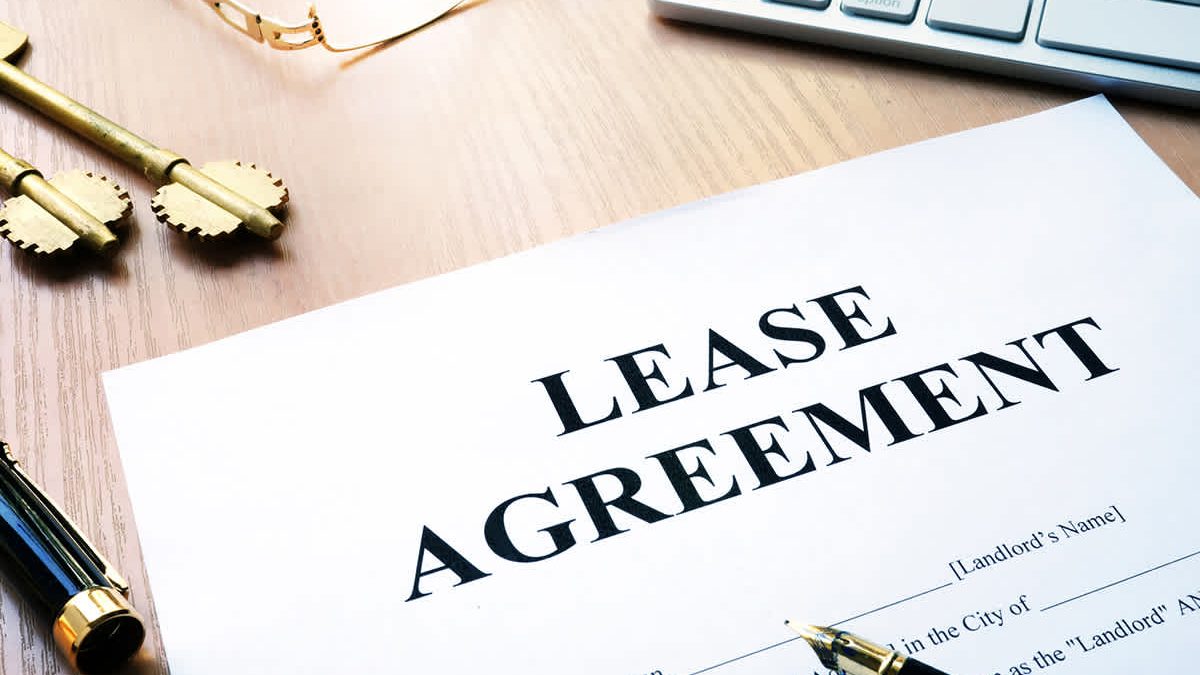- Have any questions?
- (850) 713-4866
- info@shorefrontrestorations.com
A Lease Agreement at the Least

Homeowner’s Associations (HOA’s): Are You In or Out?
March 30, 2021To wrap up our conversation on keeping bad tenants away from your rental and ensuring that the good ones stay, we’ll be hitting two birds in one stone by giving tips on making a solid lease agreement. Why are lease agreements essential? Let’s get right into the heart of the matter!
Human Nature and The Creation of Contracts
You might be surprised that there are still some people letting people rent on a verbal agreement. That person might be you! Well, different strokes for different folks, right? As bad as the world is right now, people you can trust still exist. But, be honest, are you willing to put your business at risk? Some of us here can’t even trust ourselves to do what’s right! Precisely because of the unfortunate nature of human beings, lease agreements and other types of contracts exist.
In simple terms, a lease agreement (or rental agreement) is a bunch of paperwork that dictates the conditions your tenant must abide by as you permit them to stay in your property. Of course, as with all modern agreements, they’re sealed in ink. And if we’re talking about modern contracts, some even have online signatures. It does sound a little corporate, but at least we’re not sealing everything in blood anymore, right?
Having a written document between you and your tenants is a good way to protect both parties. If your tenant fails their end of the bargain (like doing their best NOT to burn your house down), then you have proof that they didn’t keep their promise. In the same way, it also gives them expectations on what you’ll be doing.
While treating someone’s house with respect is common sense to many people, some find it hard to draw the line on certain things. For example, if you only have a verbal agreement with your tenant that they can’t be noisy when it’s late, at what point does time become “late”?
Don’t worry. Writing a lease agreement is not as hard as it sounds. At least not anymore because you don’t have to start from scratch. There are loads of forms you can download online! Once you’re able to find one that looks good, just modify them accordingly. Also, do consider working with a landlord/tenant attorney to make sure you’re putting yourself in a safe position rather than setting yourself up for a massive lawsuit!
What Should Be in the Lease Agreement?
Now don’t go telling us that you’ll let the attorney do all the work, okay? It’s going to be a collaborative effort that involves your input as well. While your lease should abide by the law, it should also be customized to fit your preferences as a landlord. To ensure that this happens, you have to learn the basics of what should be in a rental agreement.
The Who’s and Where’s
- We need to know the people involved in the lease. Identify the landlord’s (or their agent’s) and the tenant/s’ names. Everyone above the age of 18 must be named and should sign.
- Note down the specific mailing address of the property, even the parking space (or other amenities like it) that are included in the tenancy. You don’t want someone feigning ignorance that they agreed to the terms for a differentproperty and not the one you’ve furnished for them.
Rent Details
- Write down how long the contract will be valid. Specify a start and end date, and avoid general terms like “six months” or “one year”.
- The lease should contain the amount of the rent, its due date, and the acceptable payment methods. Late fees and the grace period (if applicable) are to be included here too. This determines your monthly expectations, so make sure you’ve got this covered!
- Details about security deposits should be on the lease as well. It’s a layer of protection should things go wrong, even if you trust the tenant. Specify how much the security deposit is, the date it was collected, the bank where it’s going to be (name and address), the interest rate, reasons why you might take deductions from it, and the process of returning it.
Rules and Regulations
As childish as it might seem, you should add “do’s and don’ts” for your tenant to observe. Double-check with your attorney to see what would be mandatory or what you can’t obligate your tenants to do.
- Give your residents the responsibility to maintain the property free from hazards (safety or sanitary), prevent causing major damage, keep up with housing codes, and stay away from engaging in any illegal activity within the house.
- Mention the maximum number of people who can take residence in the property. You can’t have twenty people living in a two-bedroom apartment. And yes, there are wild stories out there!
- Other house rules may be included such as setting up “quiet hours”, prohibiting smoking in certain areas, limiting the number of pets allowed, or anything else that could prevent complaints from neighbors or other tenants.
- It’s also crucial to mention the consequences of failing to abide by the rules and regulations of the lease. You usually can’t evict someone immediately, so lay out the framework of what happens during the first infraction, second, and so on until a potential eviction process will begin.
- Some other tasks you might want to entrust your tenants with are regular maintenance protocols such as regularly changing the HVAC filters, taking measures to prevent pest infestation (vacuum cleaning and proper garbage disposal), and keeping the yard reasonably maintained.
- In line with giving the obligation of doing some maintenance, it would prove useful to specify which of the two parties (either you or your tenants) would be responsible for repairing or replacing certain things in the home. Getting called to fix the AC is fine, but not to replace a couple of light bulbs.
- This is where you would also put some restrictions on the level of freedom your tenant has with renovations. For example, if the tenant wants to paint the walls, a signed approval from you (the landlord) may be needed first.
There are plenty of other things you could put in. Your “business hours”, local fire or police department hotlines, and other contact details may be useful. Including images of the house and its various rooms could also help establish an understanding of its current condition. Different areas also may require landlords to disclose some details (such as a history of pest infestation) on the paperwork. This is one of the main reasons why we recommend working with an attorney.
We hope that lit a spark in you to improve the way you work as a landlord and have your tenants sign lease agreements. Or if you already have a lease agreement, improve on it based on what you learned. Once you manage to create one that suits your needs, you just need to modify it bit by bit as laws (or your preferences) change over time.
However, if the weight of all this is too much, the “quit” button is always around the corner. And by quitting, we mean selling the property! No, you don’t have to work with a real estate agent. You can sell immediately in a couple of days to an investor. Try contacting us, Shorefront Investments, and get a free offer! You can give us a call at (850) 713-4866, send us an email, or fill a form on our front page!




